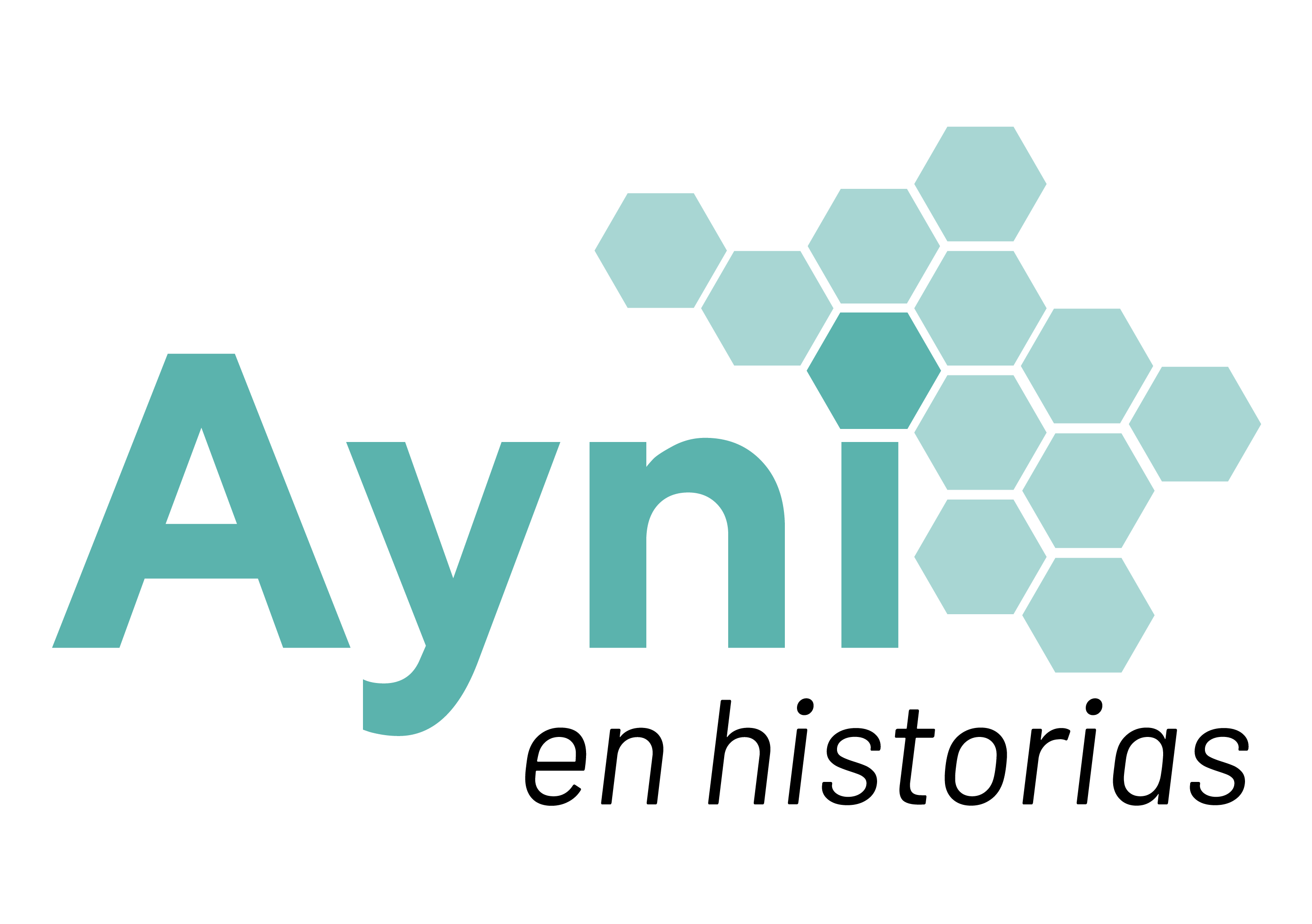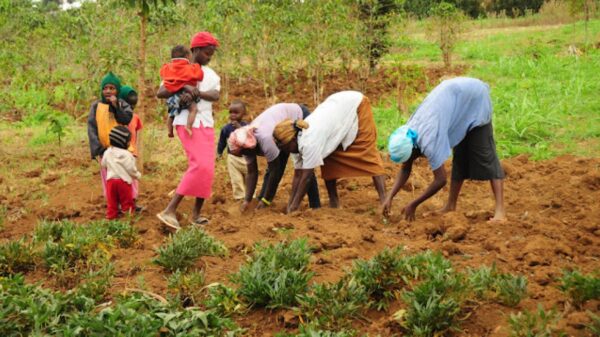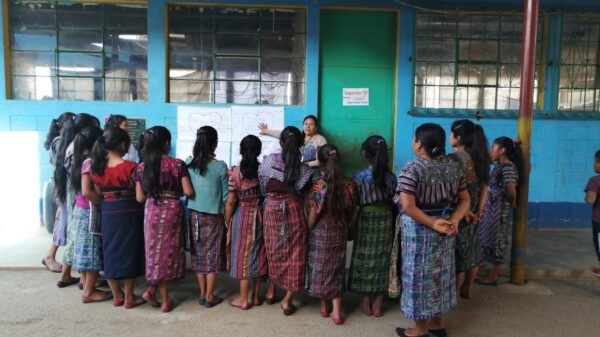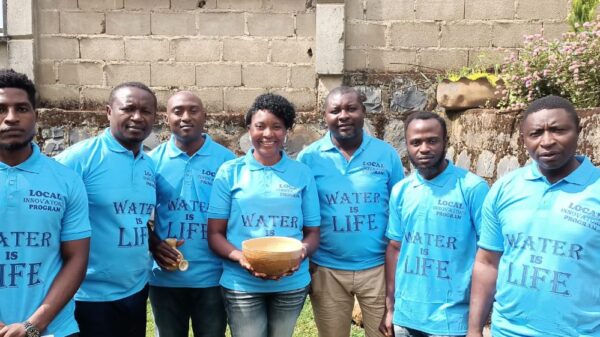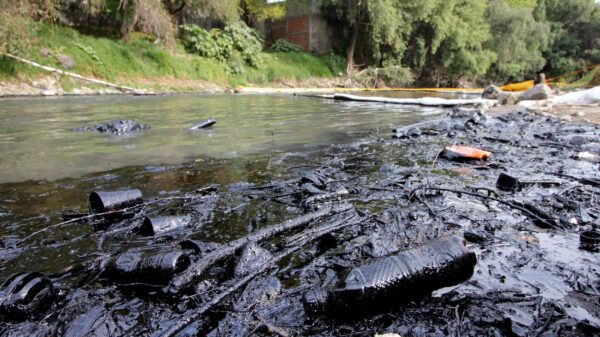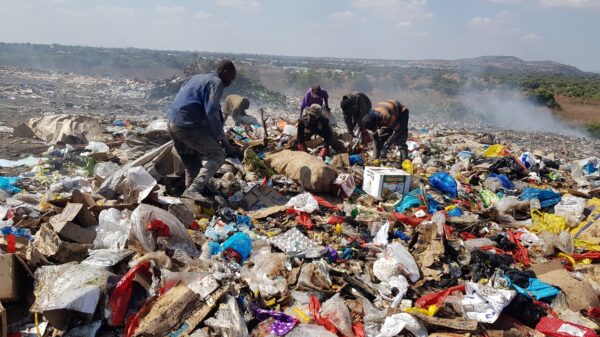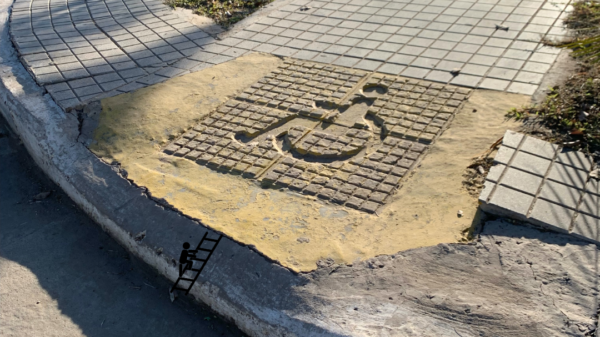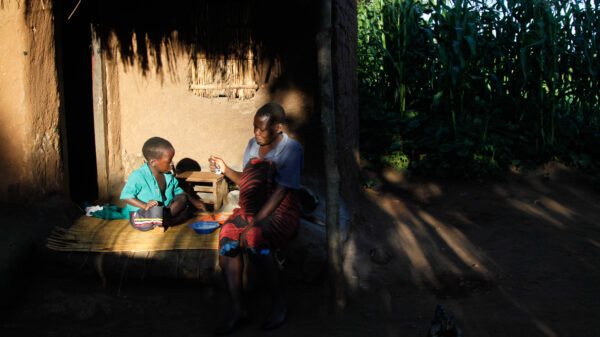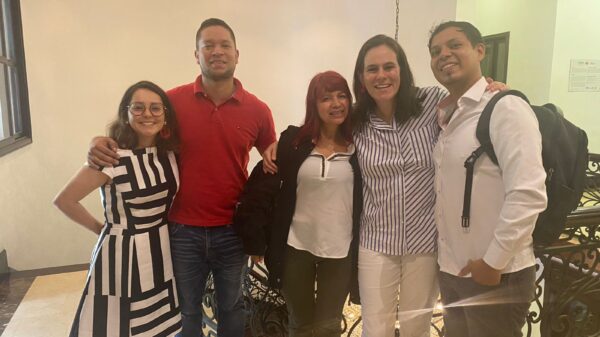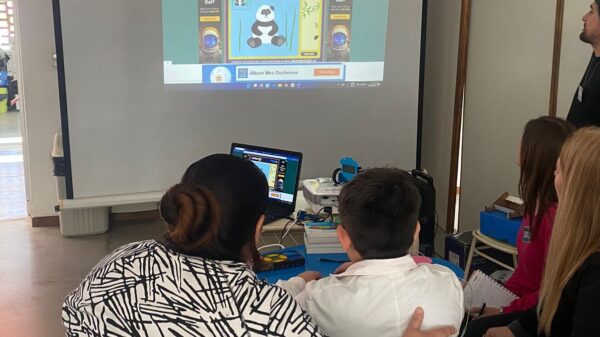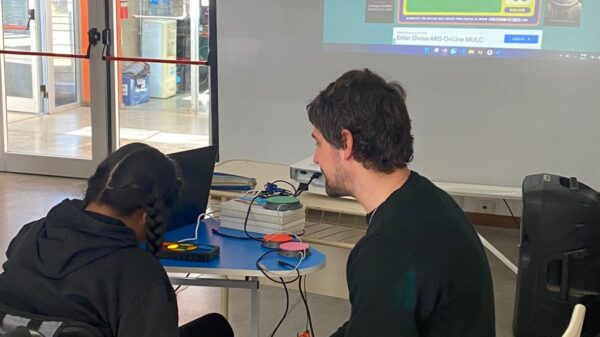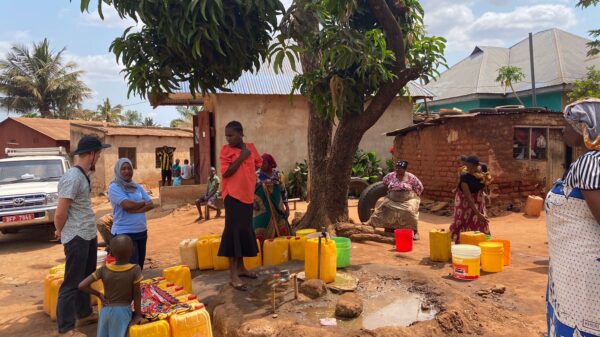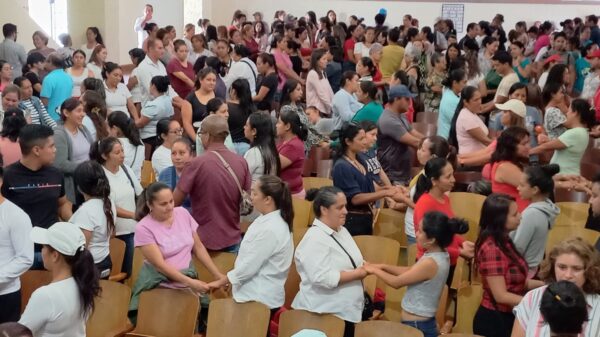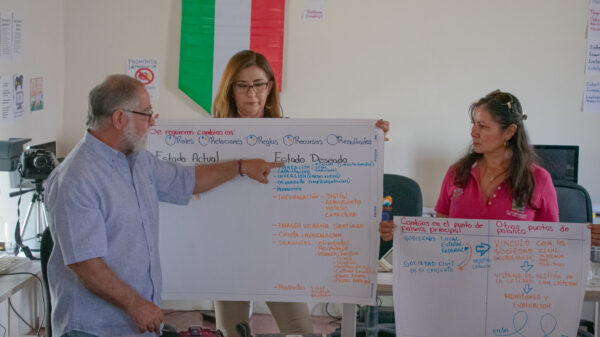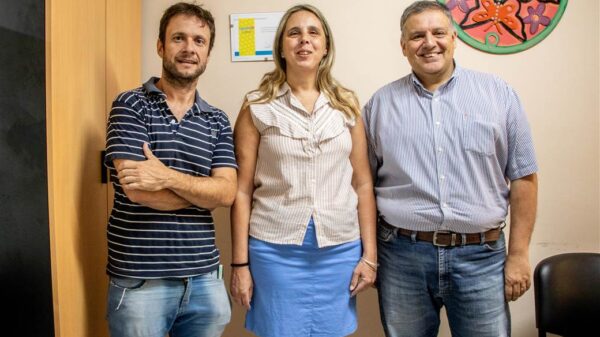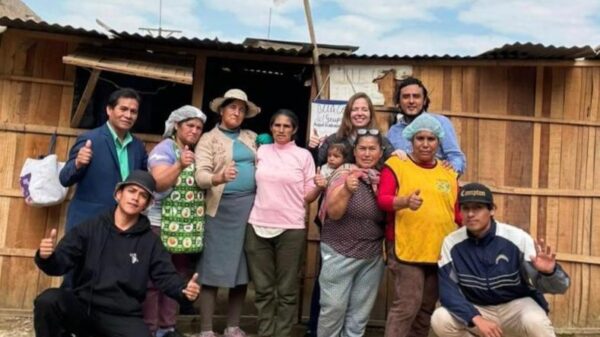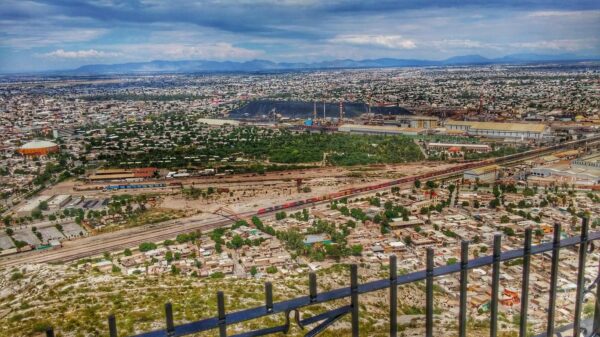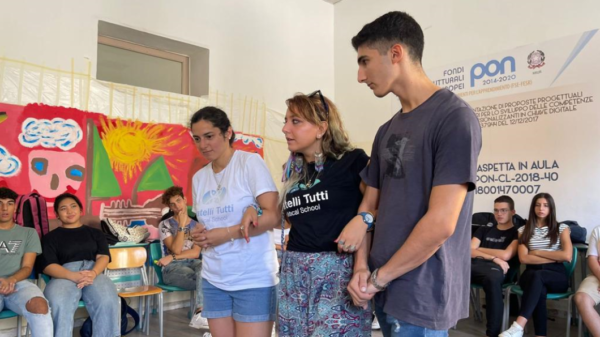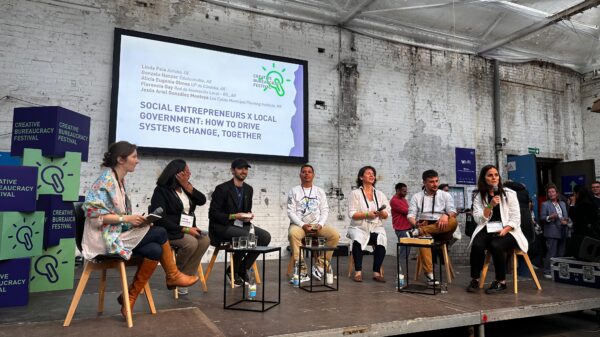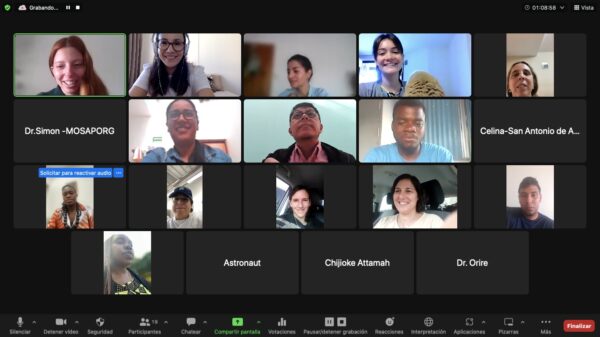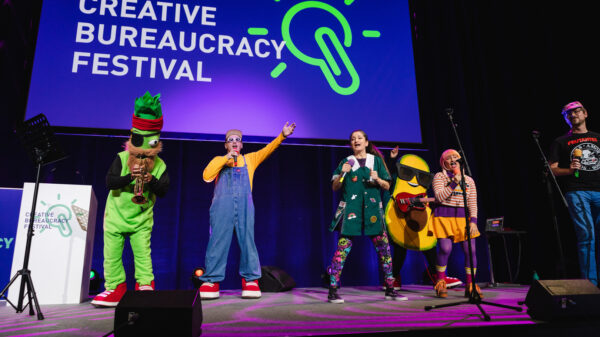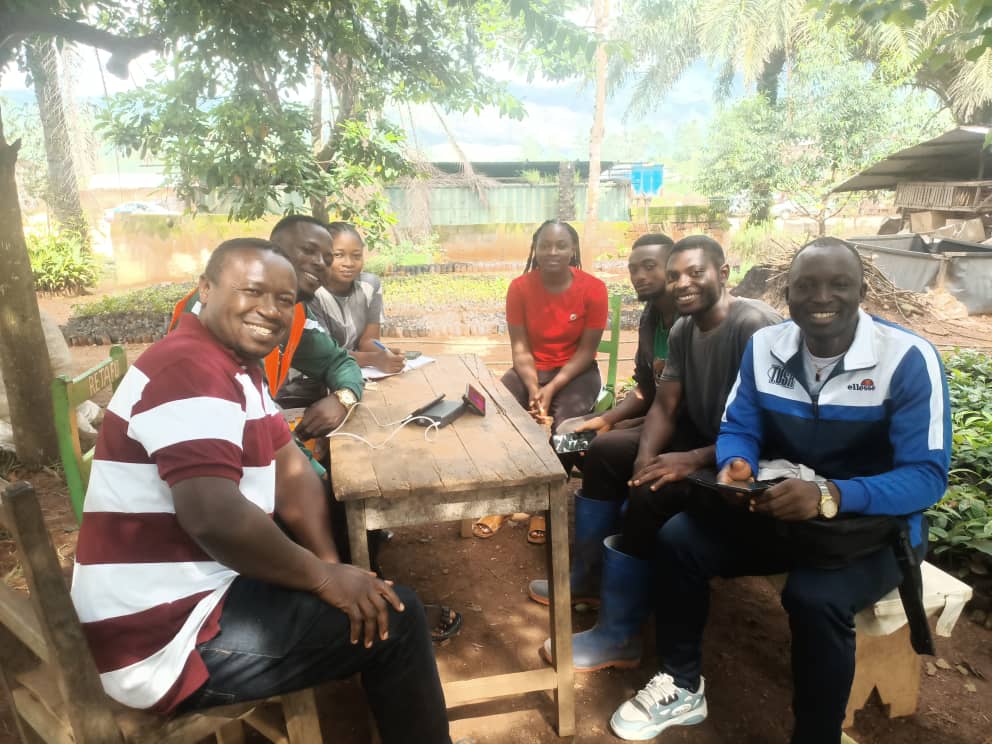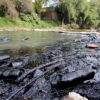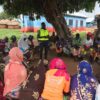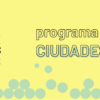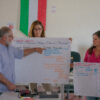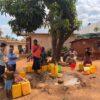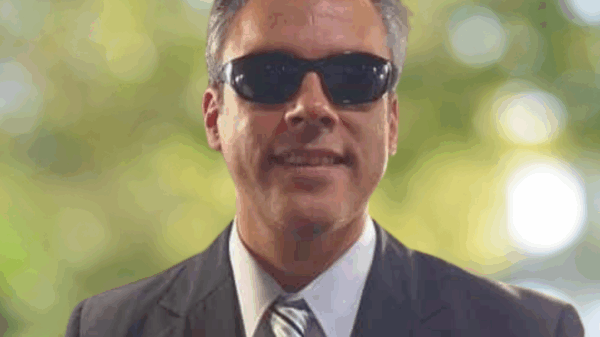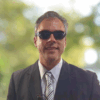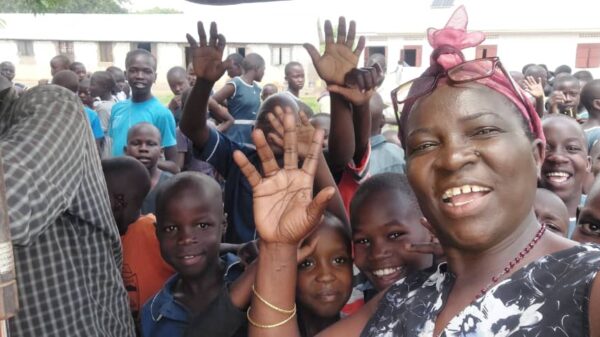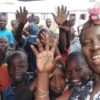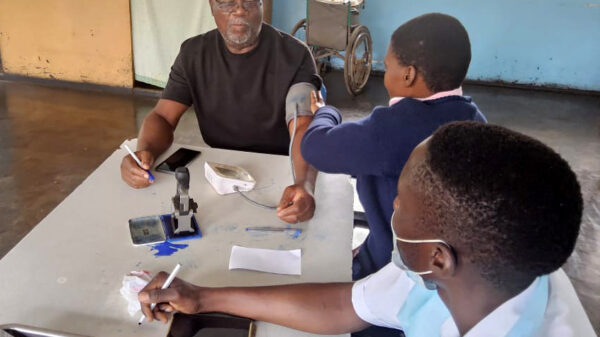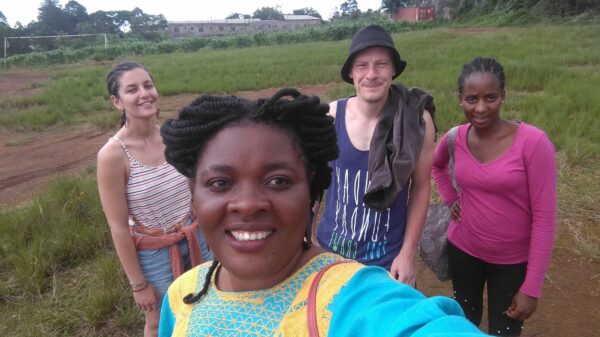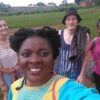El comienzo
Mi nombre es Dieudonne Tantoh Nforba, popularmente conocido como Farmer Tantoh (el granjero Tantoh). Comencé a soñar con mi movimiento comunitario en 1996, cuando aún era un estudiante de secundaria en Camerún. Mi maestra de geografía nos hablaba sobre la agricultura y los recursos hídricos en California. Instintivamente, le dije a mi padre que quería estudiar agricultura y cuidado ambiental. También le dije que mi trabajo me llevaría algún día a California para experimentar de primera mano cómo realizaban esas actividades.
Escribí en la pared de mi habitación: “CALIFORNIA EEUU, 1996”. Mi padre me preguntó: “¿Cómo vas a llegar allí?”. Le respondí: “Si me apoyas con herramientas y equipo para empezar a practicar, guardaré fotos de mi trabajo y, algún día, alguien lo verá y me llevará a California”. Él me dio todo su apoyo y me dijo: “Si lo crees, lo lograrás”. Pocos meses después, falleció. Inspirado por su fe en mí, concebí un plan de desarrollo a 30 años para trabajar en mi país como activista comunitario independiente.
En 2007, fui seleccionado para representar a África en el estudio de las cuencas hidrográficas del mundo. El programa comenzó en Estados Unidos, ¿adivina dónde? En California, a donde viajé once años después.
La misión de un agricultor
Mi misión al trabajar con las comunidades era involucrarlas en acciones para preservar el medio ambiente y cambiar la mentalidad de los jóvenes sobre la agricultura. En Camerún, el 70% de la población depende de la agricultura para sobrevivir, pero muchos jóvenes creen que es un trabajo destinado solo a personas pobres.
Como yo era tan apasionado por la agricultura, mis compañeros me apodaron Granjero. Lo usaron como un insulto, pero yo lo abracé con orgullo. Incluso lo escribí en mi camiseta escolar para demostrar que sin granjeros no hay comida ni futuro.
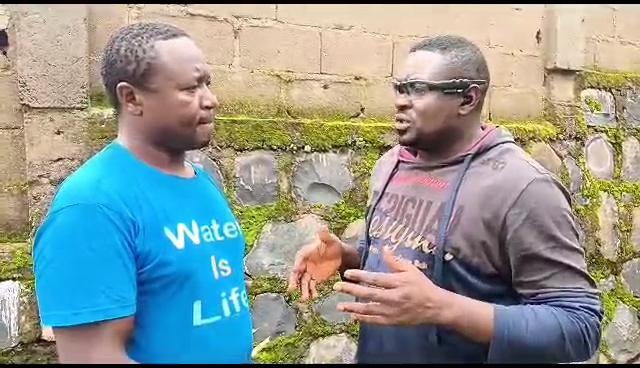
Para lograr mi misión, comencé a trabajar con jóvenes y niños en escuelas, iglesias y vecindarios, alentándolos a realizar actividades prácticas como plantar flores, árboles y césped, además de establecer huertos de vegetales.
En mi aldea, creé un jardín botánico llamado Chua-Chua Botanical Garden. El objetivo era crear un centro comunitario donde se valorara abiertamente el medio ambiente. Concebí la idea en 1999 y el sitio fue aprobado por el Consejo de Nkambe en 2005, antes del establecimiento de los jardines.
Después de mucho esfuerzo, el área se transformó en un jardín exuberante con plantas locales y exóticas, que sirvió como centro comunitario. Allí se realizaban reuniones importantes, eventos sociales y filmaciones de videos musicales. La presencia del jardín trajo prestigio nacional a Nkambe e incrementó el interés de la comunidad en entender y preservar el medio ambiente.
El proyecto alentó a los habitantes a plantar y cuidar sus propios jardines orgánicos. Más de 200 voluntarios recibieron capacitación. Además, trabajé con agricultores de bajos ingresos para promover la agroforestería y la agricultura orgánica en sus sistemas de cultivo.
Un punto de inflexión
En un momento de mi vida, contraje fiebre tifoidea mientras estudiaba en la Universidad Agrícola de Camerún. Fue una experiencia traumática; pensé que iba a morir. Me comprometí a que si sobrevivía, dedicaría mi vida a solucionar los problemas de escasez de agua, higiene y saneamiento.
La enfermedad se convirtió en un punto de inflexión. Comencé a investigar temas relacionados con el agua y me especialicé en agroforestería y protección de cuencas hidrográficas. En 2007, viajé a California para estudiar las cuencas hidrográficas con el Instituto Tahoe-Baikal, centrándome en el Lago Tahoe en California y el Lago Baikal en Siberia, Rusia. También estudié la conservación de manantiales sagrados en Mongolia.
Todo este conocimiento me transformó en un agente de cambio en mi comunidad, enseñando a las personas sobre la gestión de cuencas hidrográficas.
Un viaje de innovación sistémica colaborativa
Mi movimiento ha llevado al establecimiento de más de 800 jardines en 25 aldeas de la región noroeste de Camerún y a la construcción de 60 proyectos de agua que hoy proporcionan agua potable a más de 50,000 personas.
Lidero la iniciativa “Agua Segura para Todos”, creada gracias a nuestra participación en el Programa de Innovadores Locales 2023 de AYNI, donde fuimos ganadores mundiales. La iniciativa aborda la escasez de agua en Bamenda mediante la construcción de pozos con bombas solares, capacitación en conservación del agua y campañas de sensibilización.
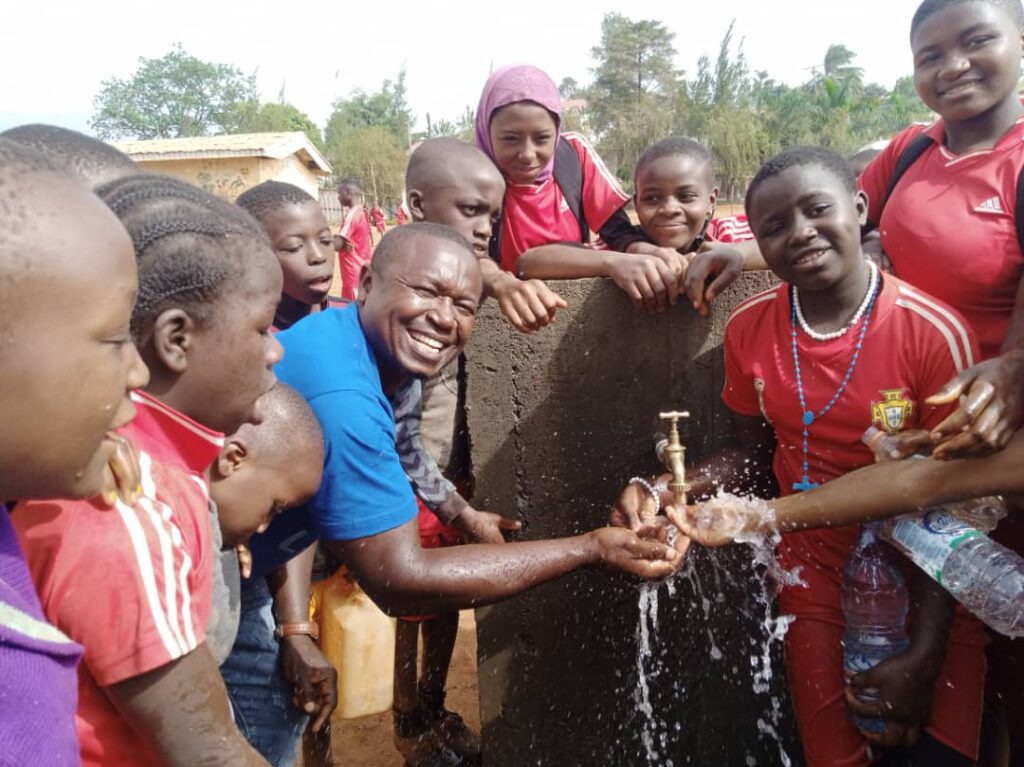
Orgullosamente un agricultor
Mi historia ha sido ilustrada en un libro infantil titulado “I Am Farmer: Growing an Environmental Movement in Cameroon”, escrito por Miranda y Baptiste Paul. El libro se usa en escuelas primarias de Estados Unidos y ha sido traducido al francés para África francófona y Haití.En 2019, viajé a Estados Unidos para el lanzamiento del libro, visité más de 40 escuelas primarias y presenté mi historia a 30,000 niños en 12 estados. Mi trabajo ha cambiado la mentalidad de cientos de jóvenes en Camerún, quienes ahora se enorgullecen de ser agricultores.
Además, he recibido numerosos premios, como el Green Apple Award en el Parlamento del Reino Unido, y soy fellow de Ashoka y Making More Health.
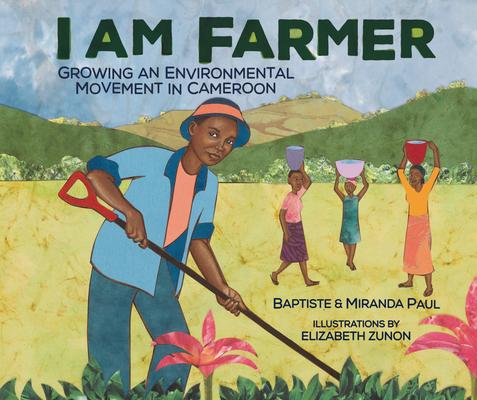
Próximos pasos
A dos años de completar mi plan de desarrollo de 30 años, estoy estableciendo una eco-aldea y un centro de capacitación en Bamenda para reconectar a los habitantes urbanos con estilos de vida ecológicos.
Para conocer el proceso de solicitud puede ponerse en contacto con Tantoh a través de:
- Grupo de WhatsApp de la Comunidad de Innovadores Locales
- PORTAL RIL
- fatantoh@gmail.com
Por último, me gustaría decirles a los jóvenes que todos nacimos con la capacidad de hacer algo significativo. No hay trabajos aburridos; la gente se aburre porque busca resultados rápidos. No importa de dónde vengas, nunca eres demasiado pequeño o insignificante para contribuir a la sostenibilidad a largo plazo de nuestro planeta, haciendo cosas sencillas lo mejor que puedas, estás mejorando nuestro mundo.
ENG
Growing an environmental movement in Cameroon, by Farmer Tantoh.
Farmer Tantoh: The Farmer Who Turned a Dream into an Environmental Movement in Cameroon
Farmer Tantoh, a beacon of inspiration in our Community of Local Innovators, is transforming communities through gardens, clean water projects, and environmental education. His inspiring story shows that with perseverance, hope, and dedication, it is possible to change the world from the ground up.
The beginning
My name is Dieudonne Tantoh Nforba, popularly known as Farmer Tantoh. I started dreaming about my grassroot movement in 1996 while a student in high school in Cameroon. My Geography teacher was telling us about agriculture and water resources in California.Spontaneously, I told my father that I wanted to study agriculture and environmental protection. I also said that my work would take me to California someday to experience firsthand how they go about these activities. I wrote on the wall of my room CALIFORNIA USA, 1996. My father asked me how are you going to get there?. I replied: “if you support me with tools and equipment to start practicing, I will keep my photos and someday, someone will see my work and take me to California”. He gave me all the support to start and told me if you believe, you will get to California. Few months later, he passed. I was inspired and conceived a 30 years development plan to work for my country as a self-employed grassroot activist.
In 2007, I was selected to represent Africa to study watersheds of the world. The program started in America, guess where? In California, where I traveled eleven years later.
A farmer’s mission
My mission to work for communities was to engage them to take actions in preserving the environment and also to change the mindset on how young people perceived agriculture. In Cameroon, 70% of the population depend on agriculture for survival and young people believe farming is a job only meant for poor people. Because I was so passionate about farming, I got the nickname FARMER from my peers as an insult, but I embraced the name and wrote it on my school shirt just to prove to my peers that when there is no farmer, there is no food and no future. In order to achieve this, I started working with youths and children in schools, churches and neighborhoods, encouraging them to carry out hands-on activities to plant flowers, trees and lawns and also established vegetable gardening. I established a botanical garden in my village called Chua-Chua Botanical garden.
The goal was to create a community center where the environment is openly cherished. I conceived the garden in 1999 and the site was approved by Nkambe Council in 2005 before the establishment of the gardens. After much hard work, the area was then transformed into a lavish garden of local and exotic plants that served as a community centre. People used to gather at the site for important meetings, social events, and to film music videos. The presence of the gardens brought national prestige to Nkambe and increased community interest in understanding and preserving the environment.
The project encouraged the local community’s efforts to plant and care for their own organic flower gardens as over 200 volunteers were trained. Besides the garden, I also worked with low-income farmers to encourage them on the integration of agroforestry techniques in their farming systems and also organic farming techniques.
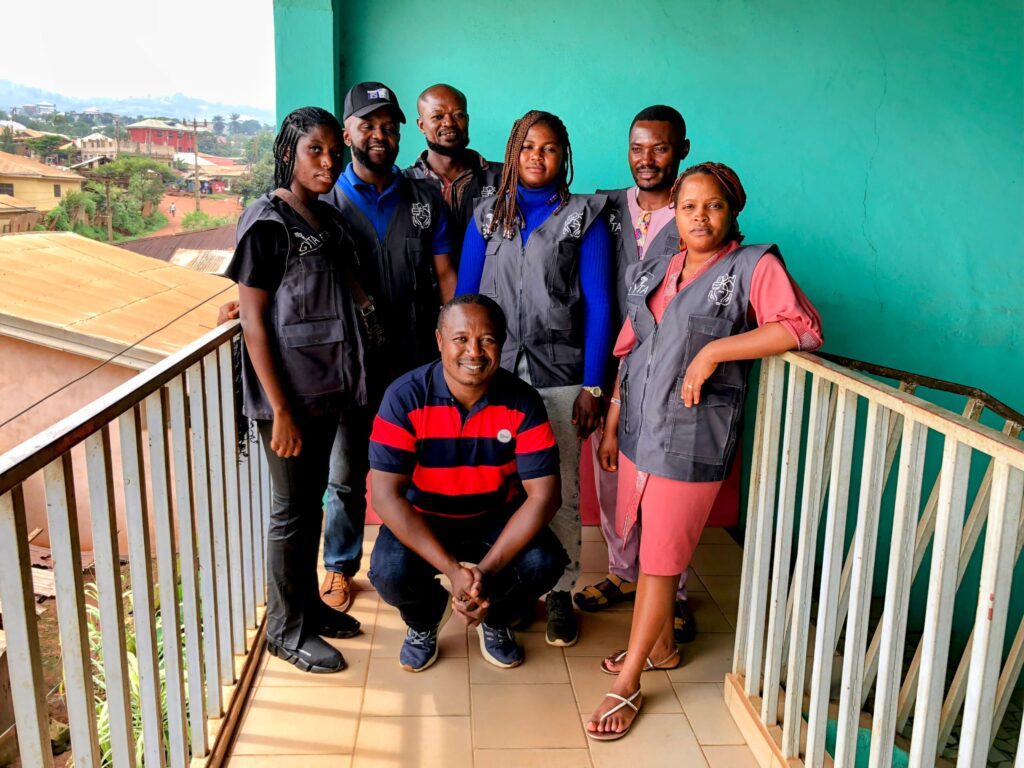
The turning point
At some point in my life, I contracted typhoid while a student at the agricultural college In Cameroon. I was so traumatized and thought I was going to die. I made a commitment that if I get well, I will dedicate my life to contributing to solving the problem of water scarcity , shortage and hygiene and sanitation. Contracting typhoid then became a turning point in my life and I started focusing my attention to do a lot of research on water issues. While in agricultural college, I specialized in agroforestry and water catchment protection. My trip to California in 2007 was to study watersheds of the world with the Tahoe-Baikal Institute with focus on Lake Tahoe in California and lake Baikal In Siberia-Russia. I also studied Bhudists and sacred places in Mongolia with focus on spring conservation. All this knowledge impacted me to become a change maker in my community to teach people about watershed management.
A journey of Collaborative Systemic Innovation
My movement has led to the establishment of over 800 gardens in over twenty five villages across the Northwest region of Cameroon and also the construction of over 60 water projects that are now providing safe drinking water to over 50,000 + people. In order to continue solving the problem of water scarcity in communities, I am the project lead of the Safe Water For All Initiative that was designed thanks to our participation in the Local Innovators Program 2023. This program is organized by AYNI to solve problems in cities across the world. After six months of intense training, my team emerged the overall winner worldwide. The Safe Water for All Initiative is addressing the critical issue of water scarcity in the City of Bamenda through a multi-faceted approach. This includes the construction of wells powered by solar pumps, training residents on water conservation techniques, planting trees in water catchments, and raising awareness about water conservation techniques.
Proudly a Farmer
I have also gained international recognition where my story was illustrated in a children’s book by American Authors-Miranda and Baptist Paul titled: I am Farmer; growing an environmental movement in Cameroon. It is being used in elementary schools across the United States and also translated into French for Francophone Africa and Haiti. In the spring of 2019, I travelled to the USA for the book launch. I visited over 40 elementary schools and presented my story to over 30,000 kids across 12 States. While in Cameroon, my story has changed the mindsets of hundreds of young people who are proud to be called farmers and are growing the movement in their communities.
Besides the book, I have received numerous awards in and out of Cameroon, especially the Green apple award at the House Of Commons in London for environmental best management practices and sustainable development. More to that, I have been elected into two prestigious fellowships in the world namely: Ashoka and Making More Health fellowships. Ashoka and making More Health identify and support social entrepreneurs across the globe, learn from the patterns in their innovations, and mobilize a global community that embraces these new frameworks to build an “everyone a changemaker world”
Next steps
In order to continue to grow this movement, I have two years to mark my 30 years development plan, then transition into doing documentaries for my youtube channel and supporting grassroot initiatives across Africa through The Farmer Tantoh Foundation. But before transitioning, I am currently establishing an eco village and a resource training center in Bamenda city with the goal of reconnecting city dwellers back to ecological lifestyles. More to that, I have also designed The Farmer Tantoh New Village Environmental Movement. The idea of the new village movement is to identify passionate young people living in rural communities or stranded in cities or abroad and willing to relocate back to their villages.
To learn about the application process you can contact Tantoh through:
1. WhatsApp group of the Local Innovators Community
2. RIL PORTAL (CONNECT map)
3. fatantoh@mascomunidadweb
My encouragement to young people is to let them understand that everyone in this world was born with an instinct and ability to do something. There are no boring jobs in this world, it’s just that people get bored because they want quick results. I don’t have a degree or masters, but I believe that my practical work in the field has earned me a PHD based on three principles-Persistence, Hope and Dedication. It doesn’t matter where you come from, you are never too small or insignificant to contribute to the long term sustainability of our planet, by doing simple things to the best of your ability, you are improving our world.
